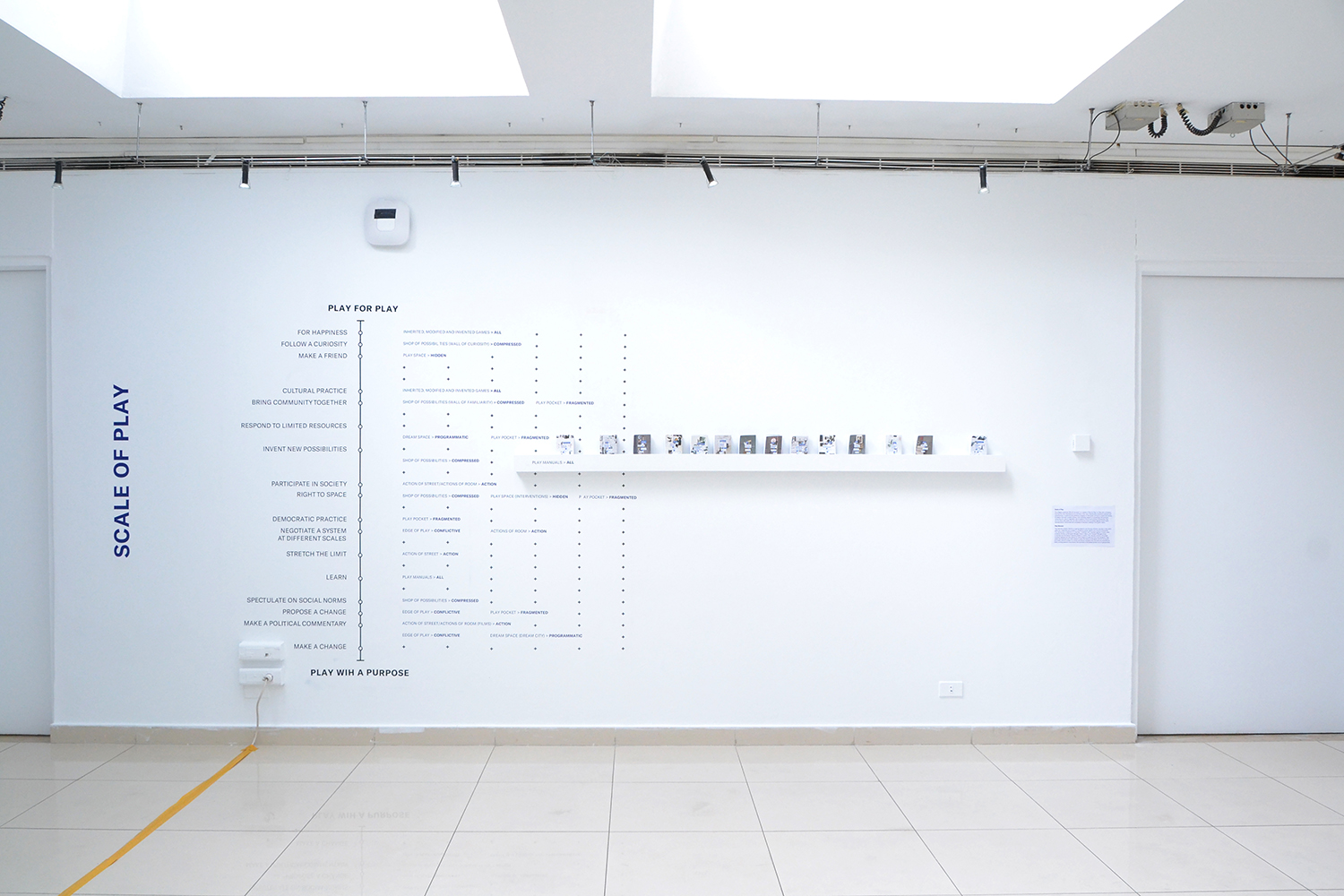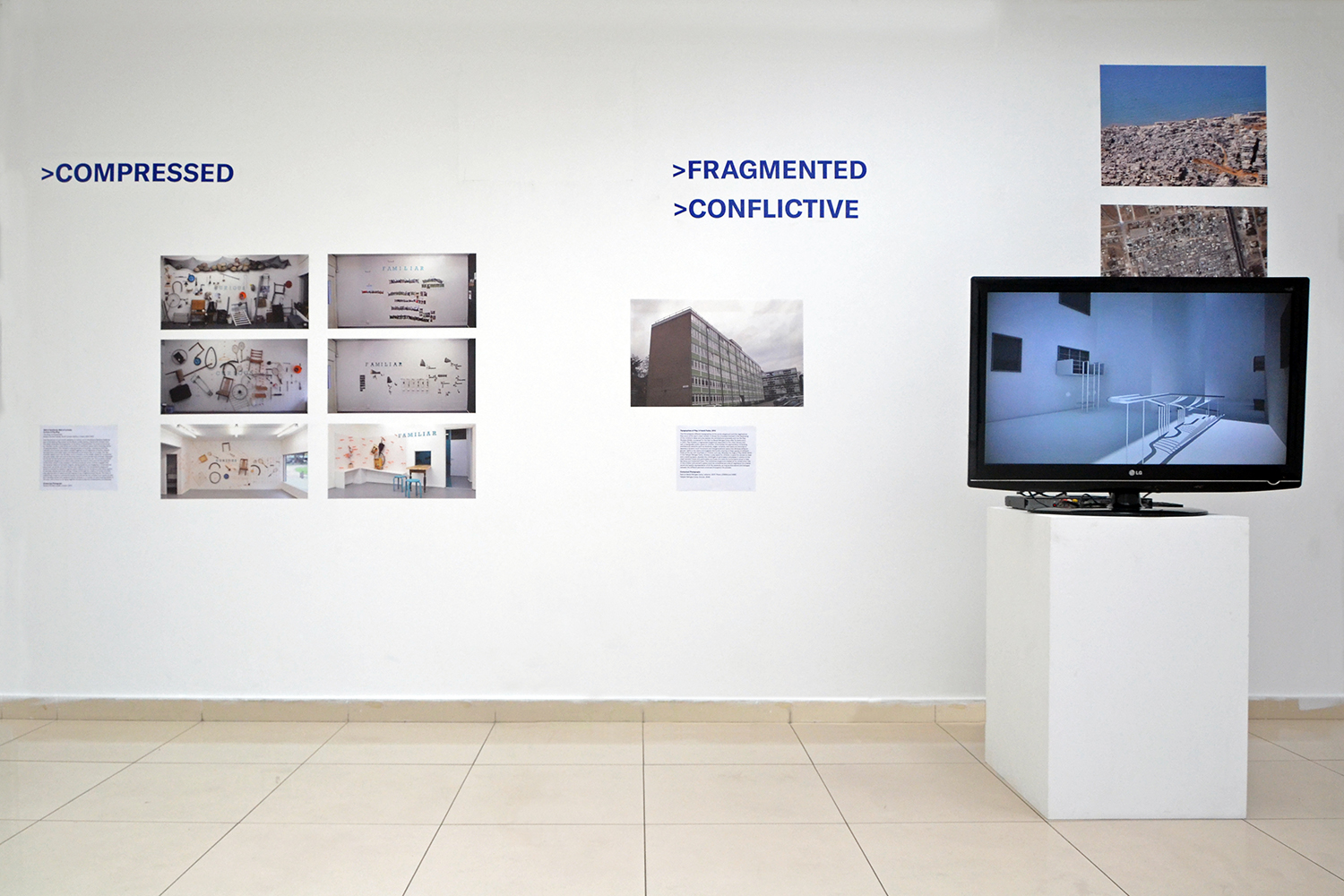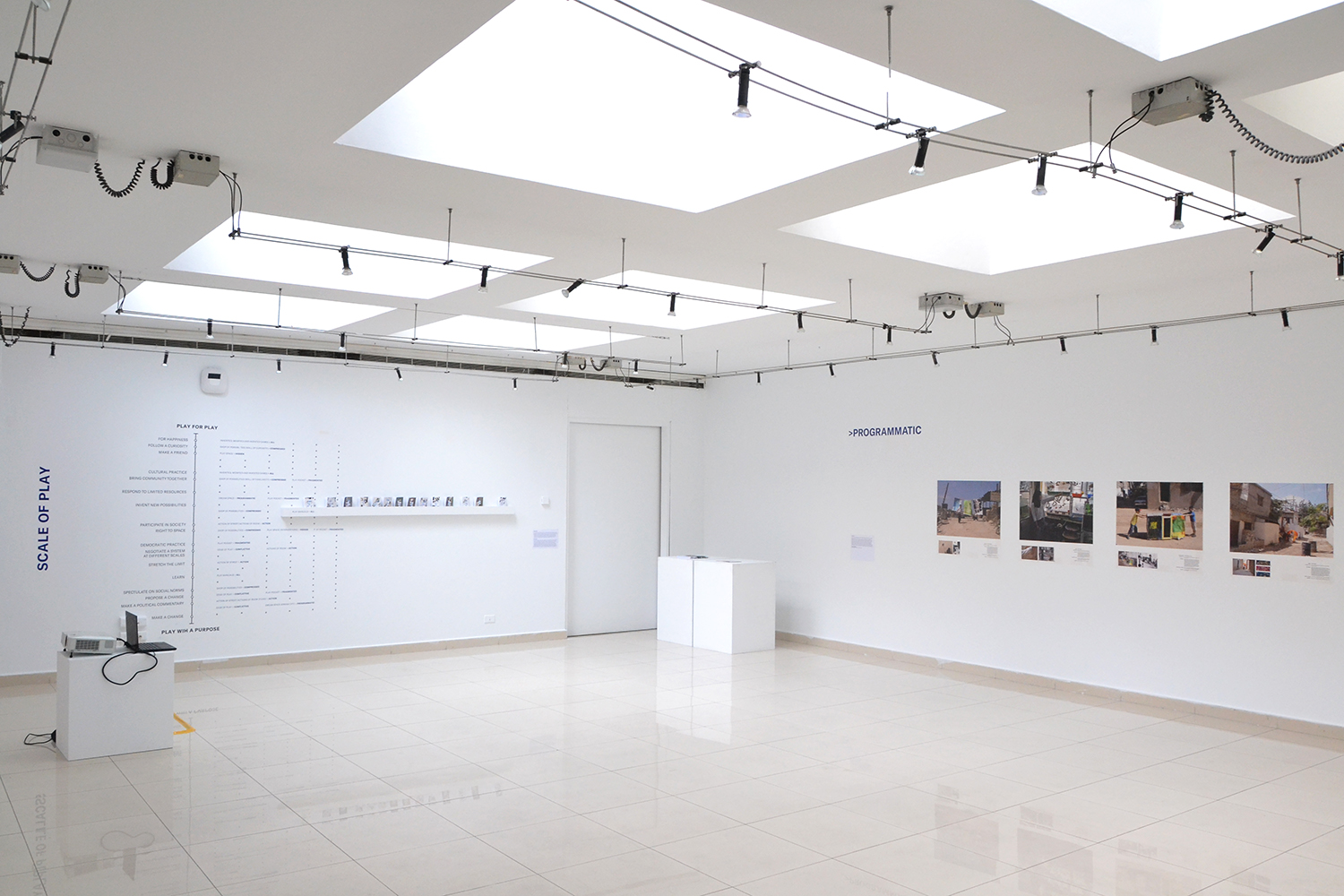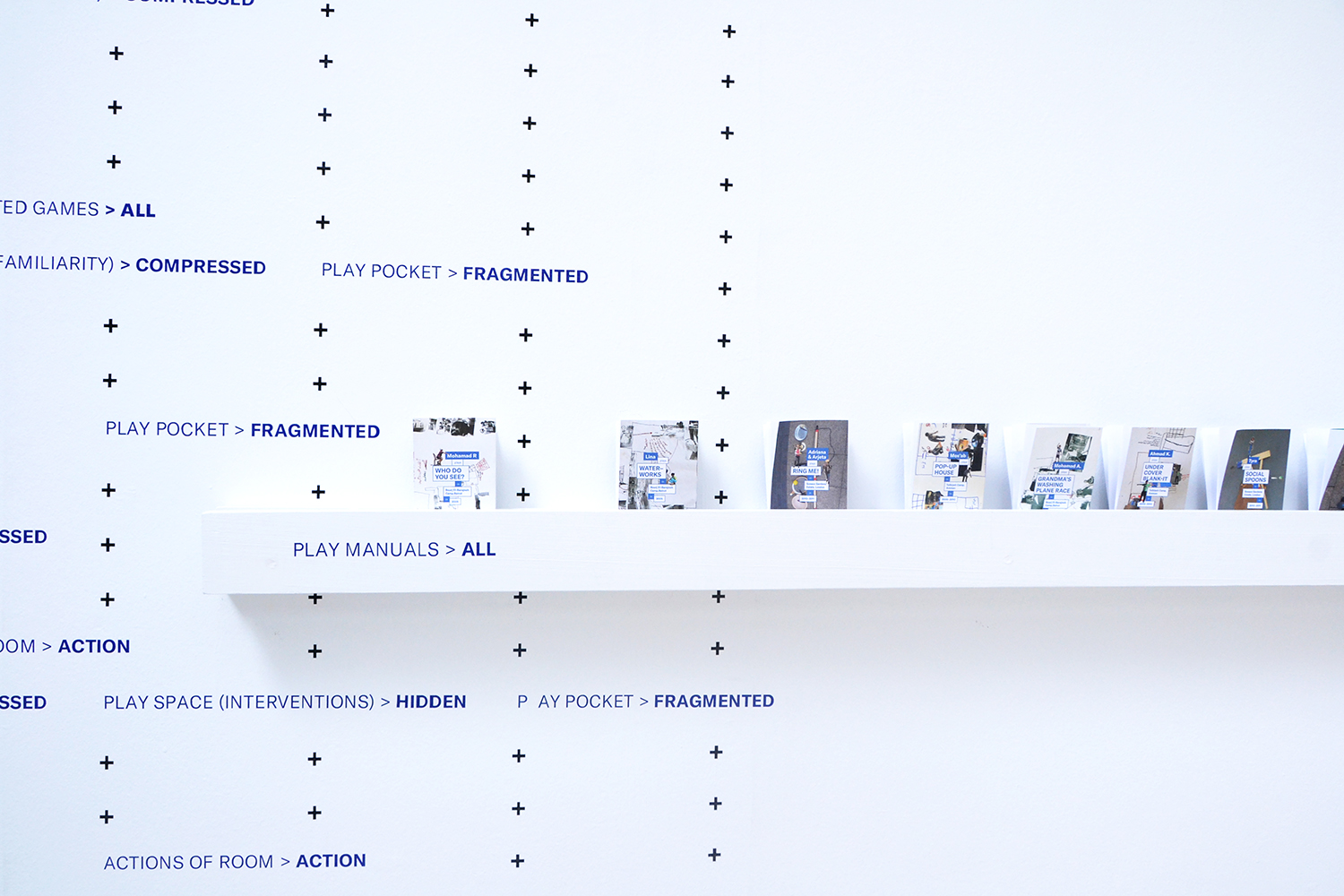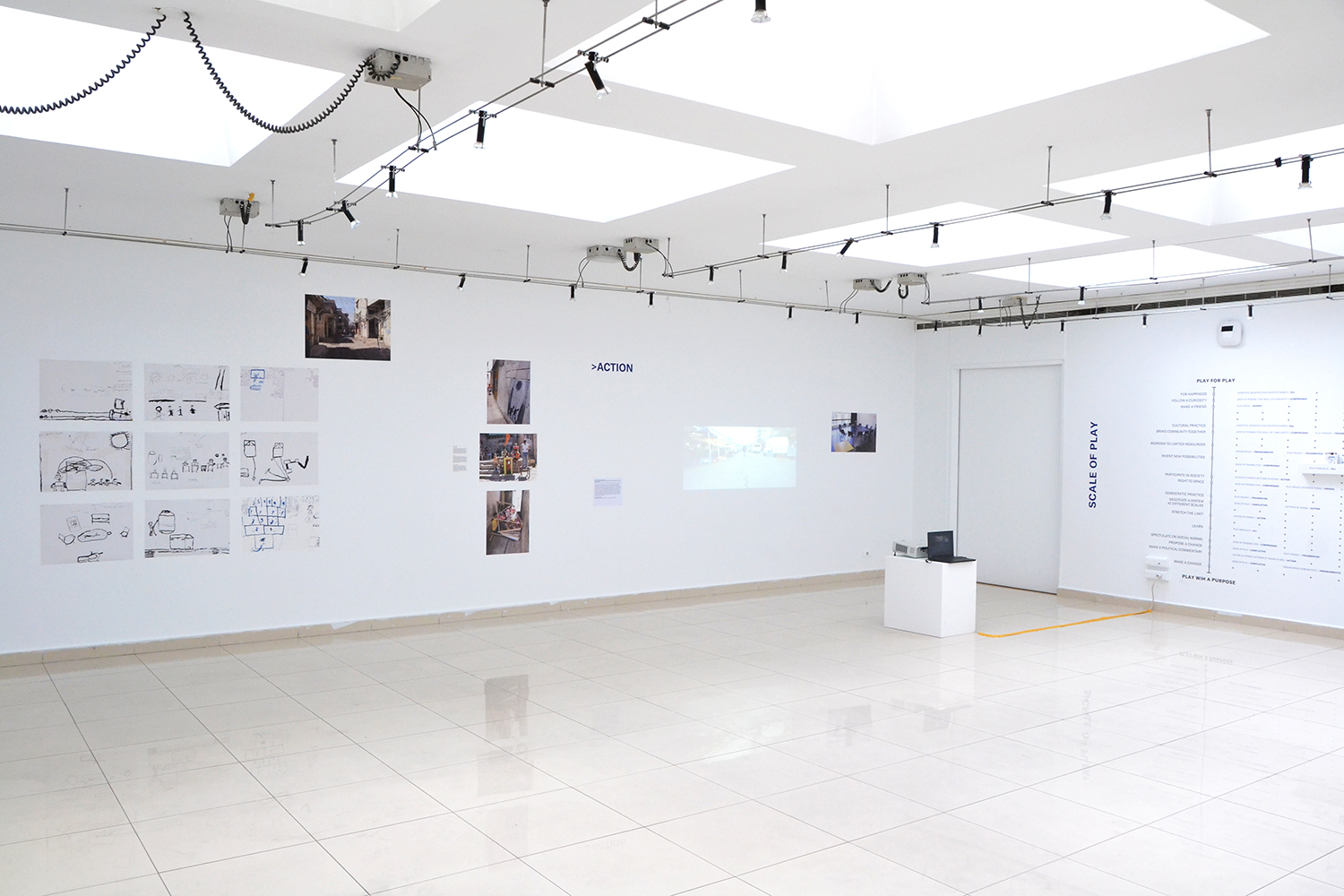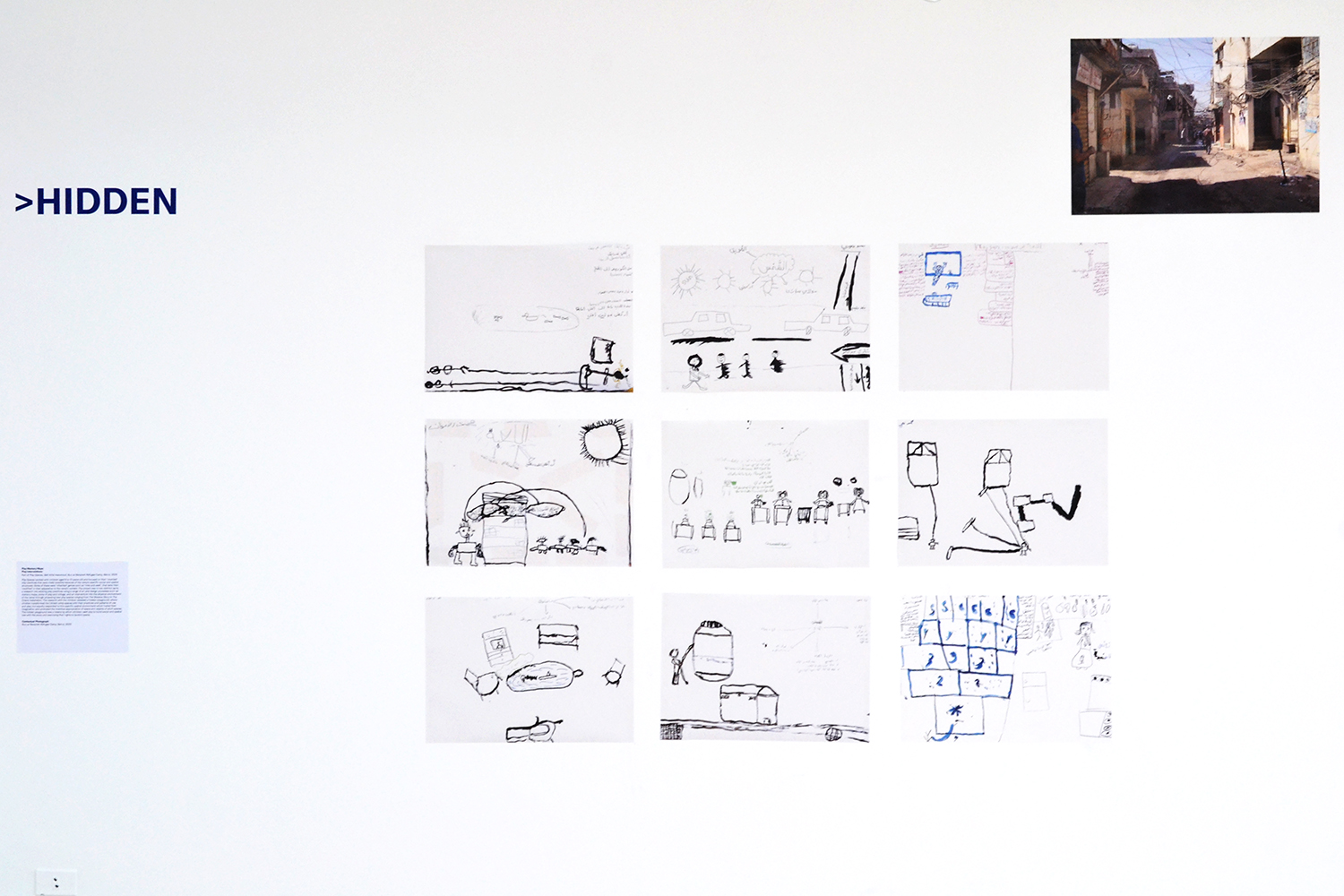THE SOCIAL PLAYGROUND: A SPACE OF PROTEST
Febrik project: Exhibition Beirut, 2017 Lebanese American University
Through a series of site-specific and socially engaged, art-based workshops in the Middle East (primarily in Palestinian refugee camps) and the UK, Febrik developed models of ‘social playgrounds’ that explored the potential of play as a mechanism for protest outside the conventional playground within an urban space. The work was brought together in a multimedia exhibition in Beirut in 2017.
Febrik’s research asked questions about public practices that could initiate a sense of belonging through creating negotiation between different community groups as well as between people and their public spaces. These questions were particularly relevant in contested spaces, such as transient spaces of refuge and local settings where the link between people and their surrounding is ruptured or denied.
The research of Febrik’s ‘social playgrounds’ took place through a series of art-based workshops in different social settings over a 12-year period. Working with small groups of children and their families, the work researched local cultural and social practices, which revealed how the communities operated, and how they innovatively responded to limited resources and related to each other and to this environment. The examined ‘social playgrounds’ became spaces of proposition and sites for negotiation and intervention – spaces where resistance to bigger and possibly abstract political notions were tested through tangible every day situations and from the view of children, and subsequently their families. Febrik’s resulting work in these ‘social playgrounds’ ranged from temporary spatial installations, permanent structures and public actions.
The exhibition presented photographic documentation, text, play manuals, films and ‘Scale of Play’ – a diagram that positioned the ‘social playground’ models on a scale that revealed the spatial and playful strategies that each adopted, to help the view negotiate the context of the projects. The models identified throughout the research are the Hidden, Programmatic, Fragmented, Compressed, Conflictive and Action Playground.
Note: The above text is an edited version of the exhibition wall text.
